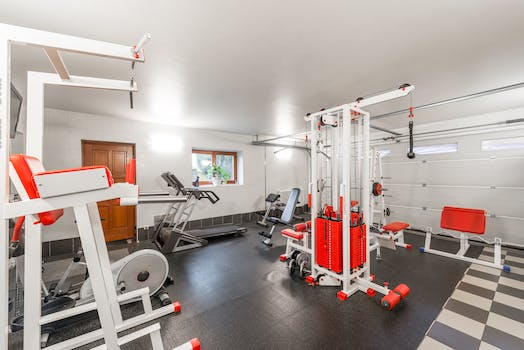Introduction: Understanding the Importance of Basement Insulation
Welcome to our latest blog post, “Basement Insulation: A Key to a Comfortable, Energy-efficient Home”. We all know that a cozy, warm home is what we desire, especially during winter. But have you ever considered the role your basement plays in maintaining this comfort? The truth is, a well-insulated basement can make a significant difference in the overall warmth of your house and even cut down on your energy bills. In this post, we will delve into the importance of basement insulation, helping you understand why it’s a critical investment for your home’s comfort and efficiency.
The Role of Basement Insulation in Energy Efficiency
Basement insulation plays a crucial role in enhancing the energy efficiency of your home. It acts as a barrier, preventing the escape of warmth in winter and the entry of heat in summer. This means your heating and cooling systems don’t have to work as hard to maintain your desired temperature, leading to a significant reduction in energy consumption and, consequently, your utility bills. Moreover, a well-insulated basement provides a comfortable living environment by maintaining consistent temperatures throughout your home. So, investing in proper basement insulation not only contributes to energy efficiency, but also adds to your comfort at home.
Types of Basement Insulation: An Overview
Basement insulation is a crucial step in creating a comfortable and energy-efficient home. There are several types of insulation you can choose from. Blanket insulation, made from fiberglass, mineral wool or plastic fibers, is a popular and cost-effective choice. Another option is sprayed or foamed-in-place insulation, which provides a continuous barrier against air and heat loss. Rigid foam insulation is great for preventing thermal bridging and has a high insulating value for relatively little thickness. Lastly, loose-fill insulation, made from cellulose, fiberglass or mineral wool, is perfect for adding insulation to finished areas, irregularly shaped areas and around obstructions. Each type has its own pros and cons, and the best choice depends on your specific needs and budget.
Pros and Cons of Different Basement Insulation Materials
Basement insulation is crucial for maintaining a comfortable, energy-efficient home. There are several options available, each with its own pros and cons. Fiberglass, for instance, is affordable and easy to install but it can absorb moisture, leading to mold problems. Rigid foam, on the other hand, offers high insulating value and resists moisture but is more expensive. Spray foam insulation provides an excellent air seal and high R-value but can be pricey and requires professional installation. Lastly, mineral wool is fire-resistant and soundproof but might be less efficient in terms of thermal performance. Therefore, choosing the right insulation material for your basement depends on your budget, local climate, and specific needs.

How to Choose the Right Insulation for Your Basement
Choosing the right insulation for your basement is a crucial step towards a comfortable, energy-efficient home. First, understand the R-value, which measures the insulation’s resistance to heat flow. The higher the R-value, the better the insulation. Basements typically require an R-value between R-10 and R-20. Next, consider the type of insulation. Blanket insulation like fiberglass is affordable and easy to install, but spray foam insulation provides a higher R-value and can fill in gaps and cracks. Lastly, consider factors like moisture control and fire resistance. Insulation with a vapor barrier can prevent dampness, while fire-resistant insulation adds an extra layer of safety. Always consult with a professional to ensure the best insulation choice for your specific basement conditions.
The Process of Installing Basement Insulation
Installing basement insulation is a straightforward process that plays a crucial role in creating a comfortable, energy-efficient home. First, you need to measure the area of your basement to determine the amount of insulation required. Next, clean the walls to ensure they are dry and free of dust or mold. Depending on the insulation type, you might need to install a vapor barrier to prevent moisture damage. After that, you can start attaching the insulation, usually beginning at the top and working your way down, ensuring it fits snugly between wall studs. Finally, secure the insulation with staples or special adhesive. Remember, wearing protective gear like gloves and safety glasses is essential throughout the process. This simple upgrade can significantly reduce your energy bills and improve your home’s comfort.
Common Mistakes to Avoid While Insulating Your Basement
When insulating your basement, avoiding common mistakes is crucial to ensure comfort and energy efficiency. First, never overlook the importance of a vapor barrier. Without it, moisture can seep into the insulation, reducing its effectiveness and potentially leading to mold growth. Also, avoid using fiberglass insulation directly against the basement walls as it can absorb moisture, leading to similar problems. Lastly, don’t ignore proper insulation around your basement windows. These areas are often neglected, but they can be significant sources of heat loss. By avoiding these common mistakes, you can make your basement a comfortable, energy-efficient space.

Maintaining and Repairing Basement Insulation: Essential Tips
Maintaining and repairing your basement insulation is crucial to keep your home comfortable and energy-efficient. Regular checks for any damages or dampness in your insulation should be carried out, especially after severe weather conditions. If you notice any moisture, it’s vital to replace that section immediately to prevent mold growth. Similarly, if there are gaps or cracks, fill them with spray foam insulation to ensure maximum efficiency. Remember, a well-maintained insulation not only keeps your home warm in winter and cool in summer but also significantly reduces your energy bills.
How Basement Insulation Contributes to a Comfortable Home
Basement insulation plays a significant role in creating a comfortable and energy-efficient home. By insulating your basement, you can effectively control the temperature of your home, keeping it warm during the winter and cool during the summer. This not only enhances your comfort but also reduces the need for excessive heating or cooling, leading to significant energy savings. Moreover, a well-insulated basement prevents the entry of moisture and drafts, further contributing to a comfortable living environment. Therefore, if you want to enjoy a cozy and cost-efficient home, don’t overlook the importance of basement insulation.
Conclusion: The Long-Term Benefits of Basement Insulation for an Energy-Efficient Home.
In conclusion, investing in basement insulation offers long-term benefits for an energy-efficient home. It plays a crucial role in maintaining a comfortable indoor atmosphere, reducing energy consumption, and lowering utility bills. Moreover, it helps in minimizing the environmental impact by reducing carbon footprint. Thus, basement insulation is not just a key to a comfortable home but also a sensible and responsible choice for a sustainable future.
